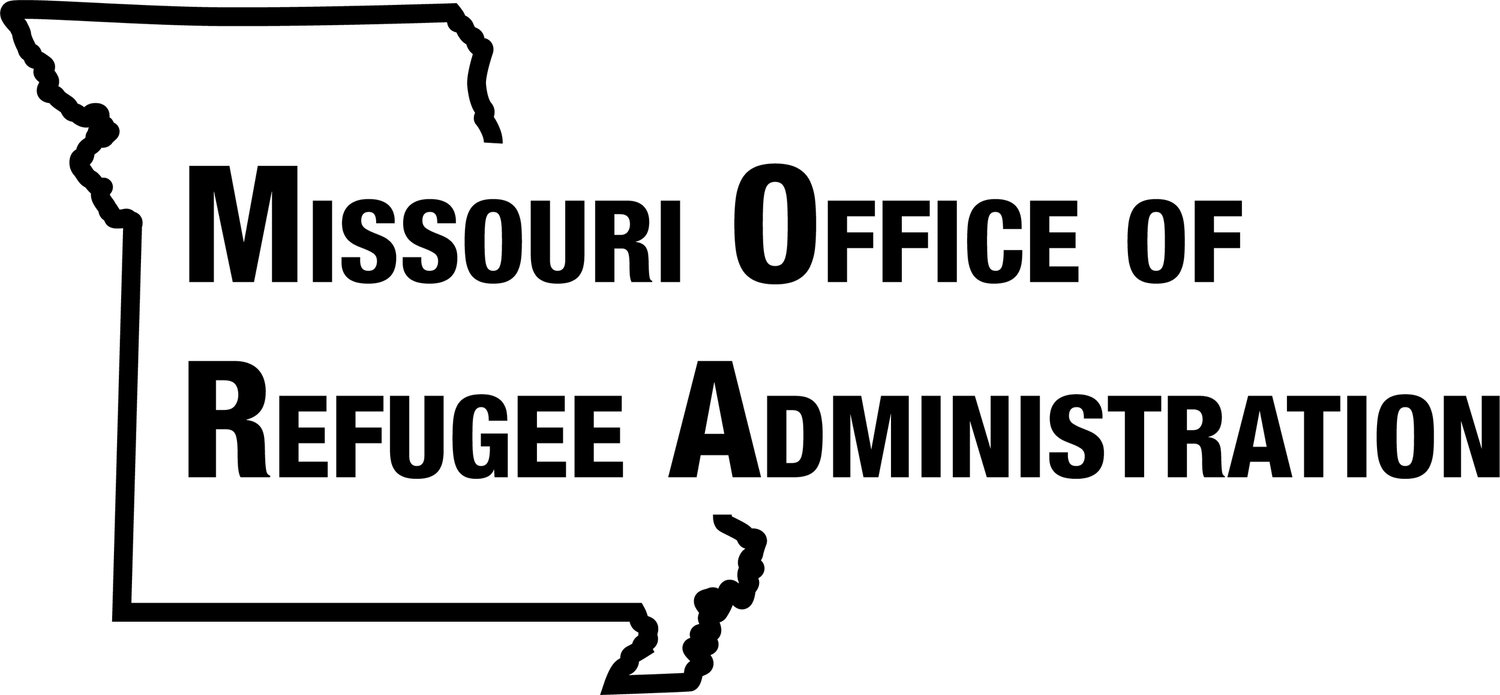Mental Health
Support Guidance
Resources regarding trauma-informed care, cultural competency, gender-based violence, and more.
-

Culture, Trauma and Refugee Mental Health Resources
The USCRI offers two training resources on The Intersection of Culture and Trauma in the Care of Diverse Populations. The resources focus on the relationship between forced migration and mental health and how service providers and even the general public can be both trauma-informed and culturally informed in their work or interactions with refugees and other new arrivals.
Intersection of Culture and Trauma in the Care of Diverse Populations helps participants understand how to provide culturally informed and trauma informed care, as well understand the nuances of mental health cross-culturally.
Mental Health Best Practices for Providers helps equip providers with a training on with foundational best practices for supporting the mental health of refugee clients. Participants learn how to use culturally appropriate assessment tools, apply trauma‑informed and strengths‑based approaches and select effective therapeutic modalities. therapeutic modalities.
To learn more or schedule a training please reach out to Katie Simpher at ksimpher@refugees.org.
-

Stages of Grief: An Emotional Roller Coaster
Resettlement may often feel like being on an emotional roller coaster and when providing services to refugee populations, it is important to meet them where they are.
Honeymoon: Typically, there might be initial relief about being away from the dangers or stressors of someone’s previous life and hope for the future.
Frustration: Relief might shift to frustration as individuals face a net set of problems including being part of a minority group where their previous life experience isn’t recognized or valued (education, training, previous work, status in community, etc). Expectations they had might also be different than the realities they are facing.
Adjustment: Eventually most individuals start to adjust to the new culture and gain a sense of control over their lives. This is important so that people don’t become isolated or marginalized
Adaptation: Eventually individuals gain a sense of identify here and are able to create meaningful relationships.
Most people move between stages while slowly and steadily moving forward.
-
Trauma Systems Therapy for Refugees (TST-R) – Trauma and Community Resilience Center, Boston Children’s Hospital
Trauma Systems Therapy for Refugees (TST-R) is an adaptation of TST that includes adding service components to enhance engagement of refugee and immigrant youth and their families, to reduce barriers tTrauma Systems Therapy for Refugeeso treatment, and to ensure that culturally-responsive, linguistically appropriate care is provided. In this regard, TST-R seeks not only to increase mental health capacity within refugee and immigrant communities, but also to increase the cultural knowledge of practitioners serving refugee and immigrant youth and families in resettlement.
Contact: tcrc@chidlrens.harvard.edu
(617) 919-4630 -
Guide: Supporting the Mental Health of Refugee Students: This resource, created by the American Psychiatric Association, is aimed at educators and mental health professionals.
Tip Sheet: Virtual Mental Health Care for Refugee Newcomers: Considerations when making referrals: This resource, created by N4 (National Newcomer Navigation Network), offers some best practices to providing virtual mental health services to newcomers.
Refugee and Immigrant Core Stressors Toolkit
National Partnership for Community Training – ORR’s national mental health technical assistance program for refugee service providers
- Technical assistanceTechnical Assistance
Info guides
Tools and resources
Webinars
Wellness country guides
Mental Health Resources for Human Trafficking Survivors and Allies – HHS
National Council for Mental Wellbeing Resources (also does consulting)
Missouri Suicide Prevention Network Suicide Prevention Training & Resource Directories
Refugee Health Technical Assistance Center – Refugee Suicide Prevention Training Toolkit
National Center for Cultural Competence Resources – Georgetown University
Refugee Trauma – The National Child Traumatic Stress Network
From the National Kidney Foundation, an informational flyer with a focus on Mental Health and Kidney Disease. Click here to the folder of translated flyers in the languages of Arabic, Bosnian, English, Spanish, Swahili, and Vietnamese.
-
Afghan Arrivals
In 2021 to early 2022 the U.S. resettled about 78,000 Afghans through Operation Allies Welcome. Missouri resettled about 1,750 Afghans.
Learn About Immigration Pathways for At-Risk Afghans – Learn More
Who are the Afghan Newcomers? Understanding the Background and Socio-cultural Strengths and Needs of Afghan Evacuees to the U.S. – Learn More
Welcoming Afghan Refugees – Learn More
Best Practices for COVID-19 Prevention and Mitigation Among Afghan Communities – Learn More
Creating a Welcoming and Healing Environment for Newly Arriving Afghan Children and Families – Learn More
Cultural Orientation for Afghan Arrivals – Learn More
Psychological First Aid (PFA) to Support Clients Affected by the Crisis in Afghanistan – Learn More
Afghan Culture and Health Screening Considerations – Learn More
Welcoming Afghan Students and Families: A Workshop for US Educators – Learn More
For more resources visit: Resettlement Resource Library – Switchboard Technical Assistance
Trauma and Culture
Working towards Culturally Responsive Trauma-Informed Care in the Refugee Resettlement Process: Qualitative Inquiry with Refugee-Serving Professionals in the United States – Learn More
Intersection of Trauma and Culture | Best Practices Session 1 | January 24th 2022 – Learn More on YouTube
A Trauma-Informed Understanding of Mental Health & Psychosocial Support (MHPSS) – Learn More
Trauma-Informed Care: Understanding and Addressing the Needs of Unaccompanied Children (UC) – Learn More
Cultural Competence in Refugee Service Settings: What Does the Research Tell Us? – Learn More
Fundamentals of Gender-Based Violence (GBV) for Refugee Service Providers: What Does a Culturally Responsive Approach Mean? – Learn More
Trauma-Informed Care: Movement Towards Practice – Learn More
Trauma-Informed Care: Understanding and Addressing the Needs of Unaccompanied Children – Learn More
For more resources visit: Resettlement Resource Library – Switchboard Technical Assistance
Mental Health
Suicide Prevention in Resettlement, Asylum and Integration Settings – Learn More
Psychological First Aid in Resettlement, Asylum, and Integration Settings – Learn More
FY21 Supporting Refugee Clients’ Adjustment and Wellbeing: A Mental Health and Psychosocial Support Primer – Learn More
Cultural Responsivity
Cultural Responsivity | Best Practices Session 2 | February 28, 2022 – Learn More on YouTube
Forced Migration
Forced Migration Experience | Best Practices Session 3 | March 21, 2022 – Learn More on YouTube
Trauma-Informed Care
Resources for Child Trauma-Informed Care | SAMHSA - Learn More
Certifications
Mental Health First Aid – Learn More
Learn: Psychological First Aid (PFA) and Skills for Psychological Recovery (SPR) – Learn More
QPR Institute | Practical and Proven Suicide Prevention Training QPR Institute (en-US) – Learn More
-
Item description
Mental Health Newsletter
The USCRI St. Louis Field Office and MO-ORA collaborated in 2023 to produce a mental health newsletter.
This quarterly newsletter highlighted refugee mental health resources and training opportunities and shared culturally responsive mental health resources for service providers and communities that engage with refugees and immigrants!




